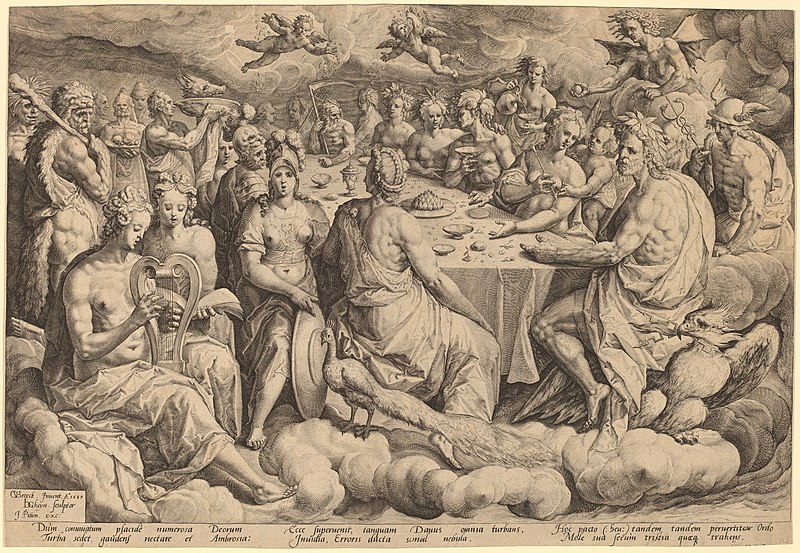Imagine that if you chose no physical object could affect you. Bullets don’t work, fists don’t work, no one can grab you or put you in handcuffs, and that’s true of everyone.
The second was:
What if you didn’t need to eat or drink and you cold and heat didn’t bother you or harm you and you didn’t get sick? You might still want shelter or a home or objects like books or computers, and objects like cosmetics would exist, but not medicine. But you would need nothing.
I didn’t write very much about these because I wanted people to think it thru on their own first. If you haven’t done so, please spend some time thinking about it now before you proceed.
I’ll suggest that applying it to yourself first is a good idea before you move on to society. Absent the possibility of violence against you and with your basic needs met would you still work at the job you’re doing now? Would you pay your taxes? Would you live where you are? Would you have kept going to school?
What would you do, or have done instead?
The point here is how much of what we do is because of fear or need, with fear of not having one’s needs met being what need is really about. Marx called this “the whip of hunger”, pointing out that people had to take terrible jobs because the option of not doing so was starving to death. You didn’t need physical whips and chains, you just needed to ensure that people couldn’t meet their needs without doing what those with power wanted.
This is what the closure of the commons, among other things, was about: removing people’s ability to support themselves. Closure of the commons was done legally, but backed by force.
I will gently suggest that most people wouldn’t be doing what they’re doing if they weren’t scared of the consequences of not doing it and that they would do very different things if fear of privation and violence were taken out of the equation.
This is important personally because it speaks to something close to who you really are or would be, and lets you know what you’re doing out of fear.
It’s not the same thing as being really rich, because money is the ability to command other people’s labor and the results of their labor. If I buy a tomato at the supermarket, a lot of labor went into growing that and getting it to the supermarket.
(I am fundraising to determine how much I’ll write this year. If you value my writing and want more of it, please consider donating. Alas, I’m neither God nor Beast.)
What it does tell you is who you would be without fear.
At the social level it asks the question of what a society would look like where social ties were fundamentally voluntary. Where you were a minor God and could live without society?
Obviously you still wouldn’t live as well without society: no internet, no supermarkets, no books, no whatever. But you could do it.
This isn’t about finding holes in the specific questions: it’s not about whether you could find a way to hurt someone without touching them or what do about some jerk following you around and screaming and you can’t use violence to shut him up, though those are worthwhile questions too, because they lead to the question “is some ability to coerce good? Under what circumstances?”
Imagine having a fire department, say. If some people didn’t want to contribute, you couldn’t make them, but a fire in their house can still spread to yours. Garbage would still need to be picked up and pollution dealt with and so on.
But if someone didn’t want to do something, there would be no way of making them.
So society would have to work without coercion.
Is that even imaginable? What would it look like? What things we do today just wouldn’t happen, or exist? A government run by people who couldn’t coerce anyone would look very, very different from what we have today or almost anything we’ve ever had.
Now this goes a bit further, in that you don’t even need to eat so there’s no “if you don’t work, you don’t eat”, but we can imagine an abundance society where there is such surplus that we have more than we need even without these hypotheticals. In a sense we almost had it: for most of the last 80 years there’s been far more food produced than is needed, and yet people still went hungry and there were famines.
But the fundamental point of these questions is simply to point out what you do because of fear of violence; fear of lack, or both.
Then, should anything which exists only because of coercion exist? Is coercion a good thing in small does even if it’s not required to protect people from the violence of other people or to distribute basic necessities?
I’m pretty sure there’d still be society, for what that’s worth: people would still need to cooperate to create certain things they want. But what would society be like if people would only cooperate to get what they wanted, in the absence of fear or violence, starvation or homelessness?
This is a genuinely hard question to think about. We’ve never existed in such a society, and no such society has ever existed. As long as we’re human, it won’t exist, though some transhumanist futures might create something close to such a world.
We think about such possibilities to show ourselves the extreme, and then consider if we should work to get closer to it, even if we can’t reach the end-state.
There are other hypotheticals, perhaps better. For example, what if association was always voluntary: you can’t even hear or see or touch someone without their consent?
Think thru these questions and you’ll see both where the constraints of being humans form you, and where they form society.


